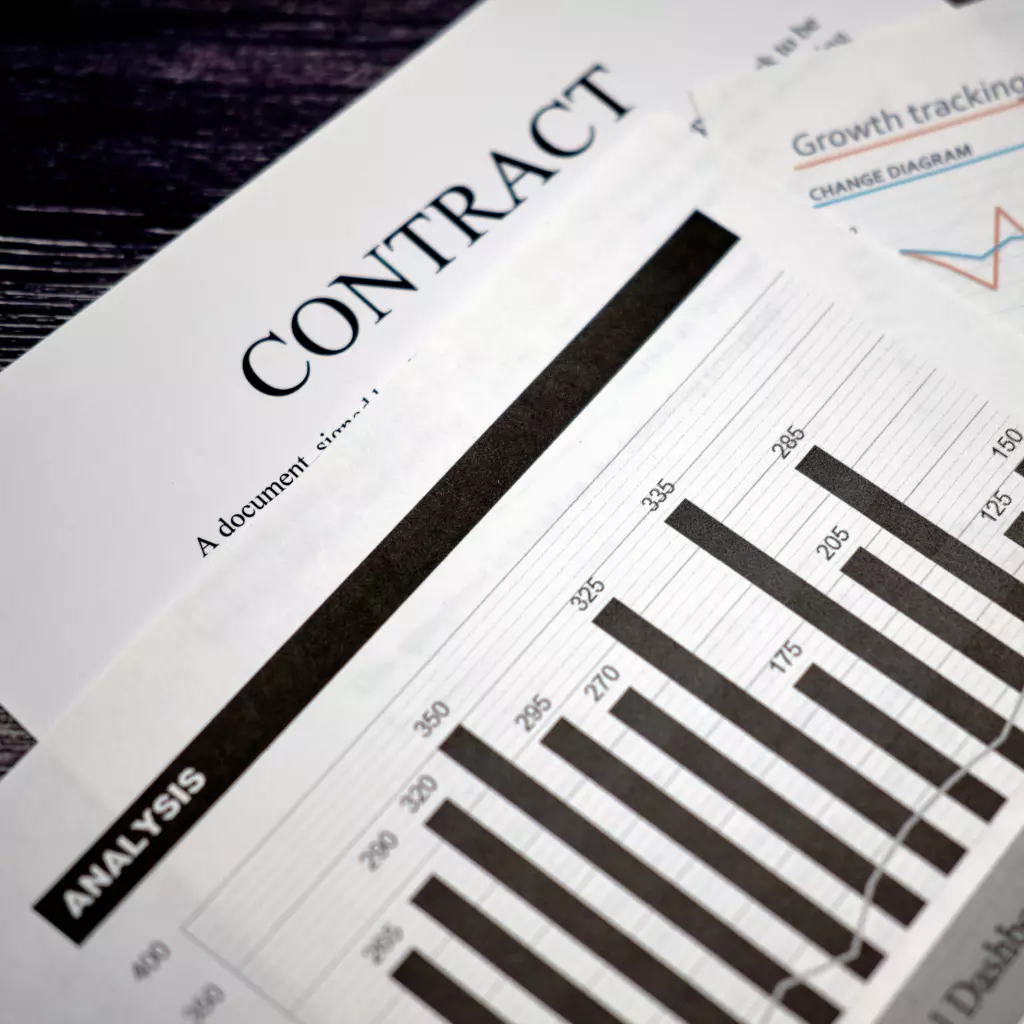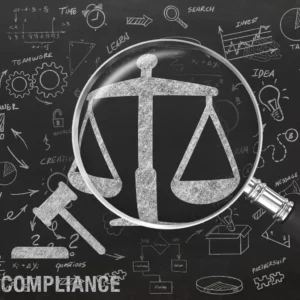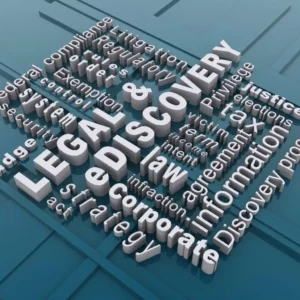
Streamlining Processes and Predicting Success
AI for Contract Analysis
Contracts, the bedrock of business transactions, have remained unchanged for centuries. But now, a revolution is afoot. Welcome to the world of AI for contract analysis – where artificial intelligence meets legal intricacies.
With AI-driven contract risk assessment and natural language processing, contracts become clearer, smarter, and more efficient. Imagine a realm where machine learning empowers contract negotiations, predictive analytics offer insights into potential outcomes, and AI seamlessly oversees the entire contract lifecycle.
This isn’t a distant dream; it’s the evolving reality of contract law. Explore how AI transforms professionals’ approach contracts, offering accuracy, foresight, and unparalleled efficiency.
Join us in exploring a future where contracts are not just agreements on paper but dynamic, AI-empowered tools driving businesses forward.
Table of Contents
Streamlining Contract Processes
The world of legal contracts is witnessing a seismic shift, thanks to the infusion of AI for contract analysis. Traditionally, drafting and reviewing contracts was a labour-intensive and time-consuming affair. But now, professionals can swiftly navigate the entire process with AI for contract lifecycle management. Instead of rummaging through pages, AI in automatic clause identification instantly helps pinpoint essential terms and clauses.
Moreover, the power of predictive analytics in contract outcomes offers a unique advantage. It provides insights into contractual terms’ probable success or pitfalls, leading to better-informed decisions. How about risk? AI-driven contract risk assessment tools come into play here, scanning documents for potential vulnerabilities or areas of concern.
Picture this: you’re stepping into a negotiation, heart racing and palms sweaty. But wait, you’ve got a secret weapon – machine learning for contract negotiations! With its powerful insights, strategic suggestions, and predictions of probable outcomes, you can enter the negotiation with confidence and ease.
No more second-guessing yourself – it’s time to seal the deal like a pro! Post-negotiation, during the review phase, natural language processing in contract reviews ensures that the legal language is consistent, clear, and devoid of ambiguities. And as for staying compliant? Fret not. AI-enhanced contract compliance checks ensure that every dotted line harmonizes with legal standards.
But how do we ensure we’re always on top of our legal responsibilities? Do we have AI-driven legal obligations tracking to keep us in check?
Gauging Contractual Success Probabilities
In the intricate dance of legal contracts, foreseeing outcomes is pivotal. AI for contract analysis is the visionary tool that’s reshaping this landscape. Historically, predicting the success of a contract was more intuition than science. This no longer remains in the realm of guesswork thanks to predictive analytics in contract outcomes.
The innovation brought by AI for contract lifecycle management offers a dynamic look into the probable success rates of agreements. But that’s not all. By delving deep into the text, natural language processing in contract reviews can discern nuances, highlighting potential weak spots or areas of contention. Imagine being able to measure the success of every clause and assess the potential risks associated with them.
Thanks to AI-driven contract risk assessment integration, professionals can do just that! Gone are the days of uncertainty and guesswork – with this cutting-edge technology, you can confidently ensure the success of your contracts.
Moreover, as contracts evolve and require renewals or amendments, AI’s role in contract renewals stands as a sentinel, guiding the future of existing agreements based on historical data and trends. And when there’s an inevitable disagreement or negotiation? Machine learning for contract negotiations is the secret weapon, projecting outcomes based on similar past scenarios.
But with all these advancements, will human intuition in legal contracts become obsolete?
Spotting Potential Contract Pitfalls
Have you ever tried to create the perfect contract? It can be daunting, filled with unexpected obstacles and challenges. Enter AI for contract analysis, the modern-day guardian against contractual missteps. In the past, identifying contract pitfalls was akin to finding a needle in a haystack. Yet, with the emergence of AI in automatic clause identification, legal experts can swiftly spot contentious clauses or omissions.
AI-driven contract risk assessment illuminates potential risks, offering previously unattainable foresight. It works in tandem with natural language processing in contract reviews to understand the semantics and context, ensuring that the spirit and letter of the contract align perfectly.
Furthermore, AI for contract lifecycle management provides
- an ongoing audit,
- tracking the performance and implications of each contract,
- flagging any potential issues long before they become glaring problems.
When negotiations commence, armed with machine learning for contract negotiations, professionals can preemptively address problems that might arise based on historical data and predictive patterns.
In an environment where compliance is paramount, AI-enhanced contract compliance checks bolster the defence against potential pitfalls by ensuring that every agreement adheres to regulatory standards.
With AI taking centre stage in identifying pitfalls, what does this mean for the future roles of traditional contract reviewers?
Identifying Critical Clauses Instantly
Gone are the days when legal professionals sifted through dense contracts for hours, seeking pivotal clauses. Today, the transformative power of AI for contract analysis has expedited this essential task. At the heart of this change lies AI in automatic clause identification. This innovative feature empowers experts to spot and extract vital clauses in a fraction of the traditional time.
Coupled with natural language processing in contract reviews, AI comprehends the intricate legal language, ensuring no critical detail slips through the cracks. The synergy of these technologies within the broader scope of AI for contract lifecycle management means that from inception to completion, contracts remain robust, with every essential term rightly highlighted.
AI’s role in contract renewals as contracts evolve ensures that no significant clause is overlooked, even during updates. Meanwhile, AI-enhanced contract compliance checks provide an extra layer of security, guaranteeing that identified clauses align with regulatory mandates.
But it’s not just about identifying; with the insights from predictive analytics in contract outcomes, professionals can gauge the potential implications of each clause. As we rapidly transition to AI-driven clause detection, how might this redefine the benchmarks of contract drafting excellence?
Strategizing Negotiations Using AI Insights
Negotiations form the cornerstone of any contract process. Based on experience and instinct, they are often the key to success. With the advent of AI for contract analysis, the paradigm has transformed. Legal negotiators now harness the intelligence and predictions of machine learning for contract negotiations, making strategies more informed and outcomes more favourable.
Delving into historical contract data, predictive analytics in contract outcomes offer a roadmap. They suggest probable effects and highlight patterns that lead to successful negotiations. Combine this with AI-driven contract risk assessment, and negotiators can preemptively tackle potential roadblocks, ensuring smoother negotiations.
But it’s not solely about foreseeing outcomes. The capability of AI in automatic clause identification assists in quickly referencing similar clauses from past contracts, offering context and precedent during discussions. Furthermore, natural language processing in contract reviews aids in interpreting the nuances of language, ensuring that the terms discussed are clear, precise, and consistent.
In an era dominated by data, AI for contract lifecycle management integrates these insights, ensuring reactive and proactive negotiations anticipating needs and challenges. As we rely more on AI insights, how might this shift the balance of power during negotiations?
Speeding Up Contract Reviews
Efficiency is paramount in the fast-paced legal domain, especially concerning contract reviews. AI for contract analysis is pivotal in revolutionizing this intricate task. No longer do professionals need to spend exhaustive hours meticulously analyzing contracts line by line.
AI in automatic clause identification stands at the forefront, rapidly detecting and extracting relevant clauses. Working harmoniously with this, natural language processing in contract reviews delves into the intricacies of legal language, understanding and flagging any inconsistencies or ambiguities.
Yet, the efficiency continues. Incorporating AI-driven contract risk assessment tools during reviews highlights potential vulnerabilities, offering clarity and foresight. This, combined with predictive analytics in contract outcomes, provides a holistic picture of the probable implications of every clause and term.
The role of AI in contract lifecycle management underscores the entire review process, offering a structured and streamlined approach. AI’s role in contract renewals as contracts evolve ensures that the same efficiency extends to updating existing agreements. With such speed and precision in contract reviews, will there come a day when human oversight becomes merely supplementary?
Ensuring Contracts Meet All Compliance Standards
Compliance is a non-negotiable pillar in the intricate web of contract drafting. With regulations continually evolving, how can one ensure that contracts consistently meet the mark? The answer lies in harnessing AI for contract analysis.
Enter AI-enhanced contract compliance checks. This technology, powered by advanced algorithms, meticulously scans every word and clause, cross-referencing them with up-to-date compliance standards. The result? Any potential misalignments are instantly flagged, eliminating the room for oversights.
Complementing this, AI-driven legal obligations tracking offers a dynamic, real-time overview of all contractual obligations. It ensures that contracts are compliant at inception and remain so throughout their lifecycle, adapting to changing legal landscapes.
To further bolster compliance, natural language processing in contract reviews plays a crucial role. By understanding the depth and nuance of legal language, AI ensures that contracts are clear, transparent, and devoid of any ambiguities that could lead to compliance breaches.
Incorporated within the larger framework of AI for contract lifecycle management, these technologies work in unison, ensuring a gold standard of compliance at every contract juncture. But with AI taking charge of compliance, how will this reshape the role of legal compliance officers in the future?
Never Missing Out on Legal Obligations
Compliance is a non-negotiable pillar in the intricate web of contract drafting. With regulations continually evolving, how can one ensure that contracts consistently meet the mark? The answer lies in harnessing AI for contract analysis.
Enter AI-enhanced contract compliance checks. This technology, powered by advanced algorithms, meticulously scans every word and clause, cross-referencing them with up-to-date compliance standards. The result? Any potential misalignments are instantly flagged, eliminating the room for oversights.
Complementing this, AI-driven legal obligations tracking offers a dynamic, real-time overview of all contractual obligations. It ensures that contracts are compliant at inception and remain so throughout their lifecycle, adapting to changing legal landscapes.
To further bolster compliance, natural language processing in contract reviews plays a crucial role. By understanding the depth and nuance of legal language, AI ensures that contracts are clear, transparent, and devoid of any ambiguities that could lead to compliance breaches.
Incorporated within the larger framework of AI for contract lifecycle management, these technologies work in unison, ensuring a gold standard of compliance at every contract juncture. But with AI taking charge of compliance, how will this reshape the role of legal compliance officers in the future?
Automating Renewal Processes
Contract renewals, often deemed routine, carry significant implications. While they appear straightforward, missing a renewal or overlooking updates can lead to substantial repercussions. This is where AI for contract analysis becomes an invaluable asset.
Organizations can now automate this once manual process by harnessing the prowess of AI’s role in contract renewals. Advanced algorithms track expiration dates, trigger reminders well in advance, and initiate renewal protocols, ensuring no unintentional contract lapses.
Beyond mere reminders, AI for contract lifecycle management assesses the viability of each renewal. Drawing insights from predictive analytics in contract outcomes, it recommends changes, amendments, or even terminations based on historical performance and future projections.
Moreover, with natural language processing in contract reviews, any updated terms during renewals are swiftly assessed for clarity and compliance. As each renewal integrates clauses, AI in automatic clause identification ensures that every addition is adequately catalogued and tracked.
The seamless synergy of these AI-driven tools transforms the renewal process from a manual chore to a dynamic, data-driven strategy. As contract renewals become increasingly automated, what does this mean for the future dynamics between contracting parties?
Envisioning the AI-empowered Contract of Tomorrow
As we stand at the cusp of a new era, the traditional contract is evolving, shaped and refined by AI for contract analysis. What does the future hold for contracts in an AI-dominant landscape?
Tomorrow’s contracts will be dynamic entities. With AI in automatic clause identification and natural language processing in contract reviews, contracts will self-update, reflecting changes in regulations, market conditions, or organizational needs, ensuring they always remain relevant and compliant.
Further, predictive analytics in contract outcomes will not just react to present terms but will proactively suggest optimizations. As parties enter negotiations, machine learning for contract negotiations will provide real-time insights, guiding discussions towards mutually beneficial outcomes.
In this futuristic landscape, AI-driven contract risk assessment will predict potential disputes before they arise, offering resolution strategies or preemptive amendments. As contracts progress, AI for contract lifecycle management will oversee every phase, from drafting to renewal or termination.
This profound integration of AI into contracts paints a picture of efficiency, foresight, and adaptability. But with such deep AI involvement, one must ponder: Will the contract of the future retain its human touch, or will it become an entirely machine-mediated agreement?
Conclusion: Harnessing AI for a Transformative Contractual Landscape
The realm of contracts, traditionally rooted in meticulous human analysis and negotiations, is undergoing a seismic shift, thanks to AI for contract analysis. Heralded by technology, this transformation addresses the critical questions we’ve posed about the future of contractual processes.
Firstly, the seamless integration of AI for contract lifecycle management revolutionizes every phase, from initiation to renewal or termination. This dynamic framework and natural language processing in contract reviews ensure clarity, accuracy, and real-time contract adaptability.
However, the true strength lies in foresight. With predictive analytics in contract outcomes, parties can gauge success probabilities, making informed decisions and proactive changes. Using AI-driven contract risk assessment identifies potential pitfalls early, circumventing disputes or non-compliance.
Contract negotiations, once seen as an art of human interaction, now benefit from machine learning for contract negotiations, ensuring efficient and mutually beneficial outcomes. Moreover, the efficiency of AI in automatic clause identification empowers professionals to pinpoint critical clauses swiftly, streamlining reviews and compliance checks.
Furthermore, the promise of never missing out on legal obligations becomes a reality with AI-driven legal obligation tracking. At the same time, AI’s role in contract renewals ensures continuity and relevance in every agreement.
The future appears promising, efficient, and precise in this AI-augmented contractual landscape. However, while AI’s influence on contracts is undeniable, it is a tool that complements human expertise. The human touch remains irreplaceable, ensuring contracts resonate with human intent, understanding, and collaboration even in their most evolved form.
Related Articles
- AI in Pro Bono Case Selection: Maximizing Impact
- AI in Alternative Dispute Resolutions: The New Mediator
- AI in Courtroom Support: Revolutionizing Evidence Compilation
- AI-Driven IP Management: From Patents to Trademarks
- AI-Driven Document Categorization: Legal Filing Transformed
- AI in Compliance Monitoring: Legal Standards and Predictive Oversight
- AI-Driven Legal Chatbots: Future of Attorney-Client Interactions
- AI-Driven E-Discovery Platforms: Enhanced Efficiency and Precision
- AI-driven Legal Analytics: Transforming Decision-making and Litigation Strategies
- AI-Driven Legal Research: How Technology is Reshaping the Future of Law
- AI for Contract Analysis: Streamlining Processes and Predicting Success
- Other Articles on AI Usage in Legal
- Other Articles on AI usage in different industries
























